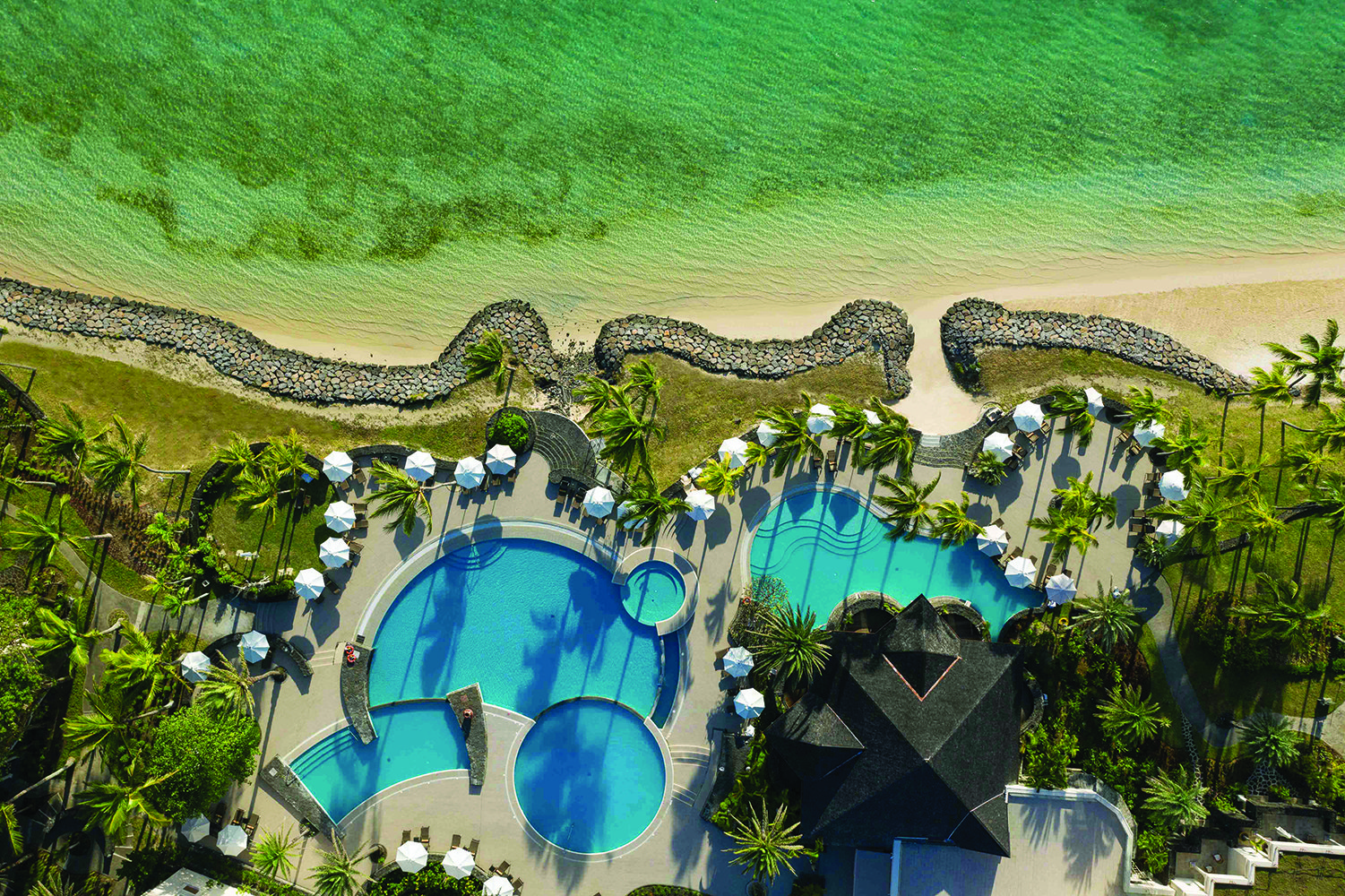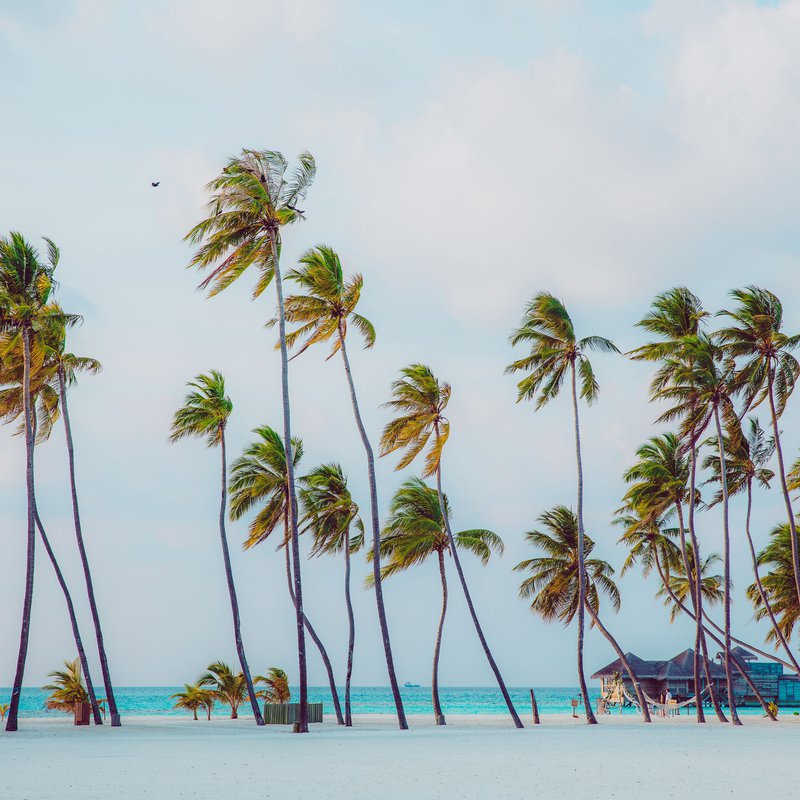When Portuguese sailors landed on the shores of Mauritius in the early 16th century, they were not enamoured of the uninhabited tropical island in the Indian Ocean and left fairly swiftly. And yet, more than 500 years later, tourism is one of the strong pillars of this island nation’s economy with tourists flocking here from across the world.
The island nation is compact; you can get from one end to another within 90 minutes. On this trip, I head to the east of the island to Belle Mare, where The Residence Mauritius will be home during my stay. As I’m driven down winding roads along the coast, it’s easy to get lost in a daydream of azure skies, turquoise ocean, rugged mountains and vibrant greenery.
Pulling into the driveway of the colonial-style The Residence Mauritius, the high ceiling lobby with wooden rafters that frame a picture-perfect view of the beach and Indian Ocean captures my attention. The resort is expansive, sprawling across more than 1½km of smooth white beachfront. And whether you get a view of the lush gardens or peaceful waters (I had an ocean front suite), you’re guaranteed a good sleep, awakening to birds chirping amid the trees. The signature scent of ylang-ylang can be found across all the rooms, and if you have a personal butler, definitely ask them to draw you a bath, which will leave you utterly relaxed.
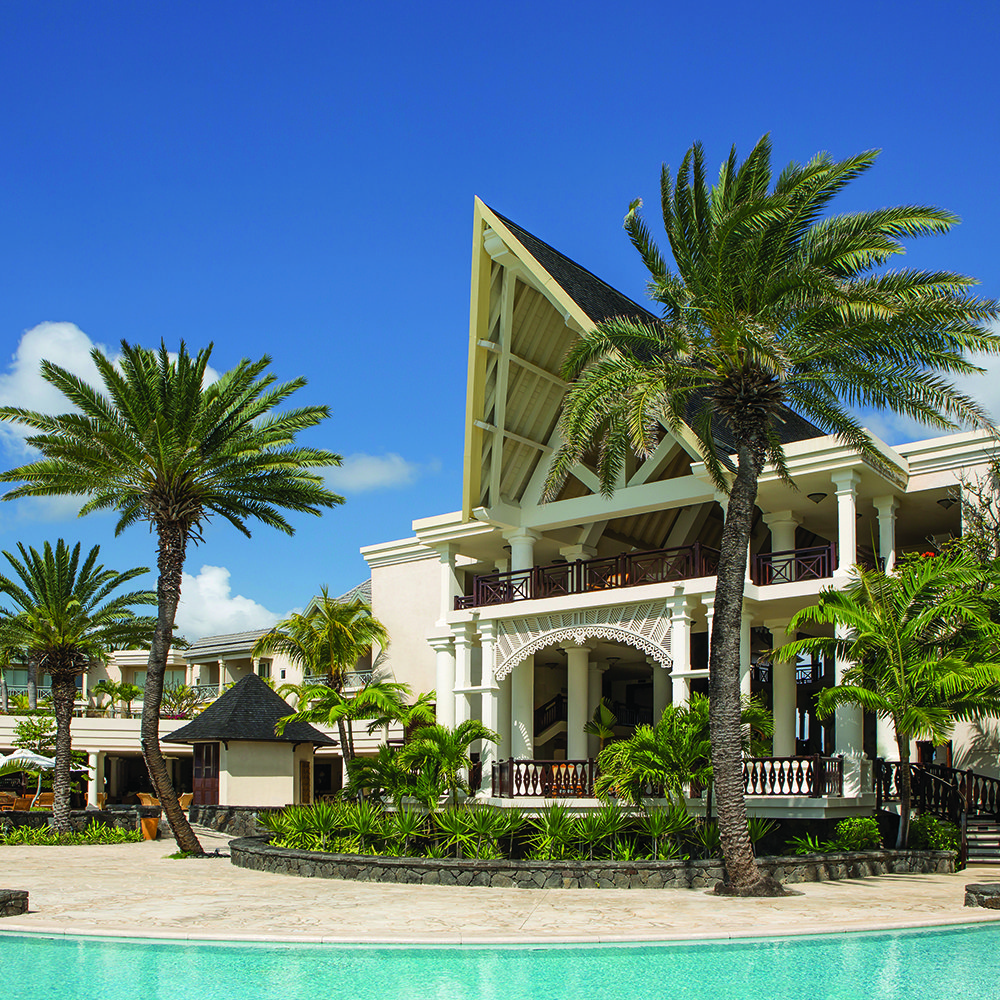
The Residence Mauritius
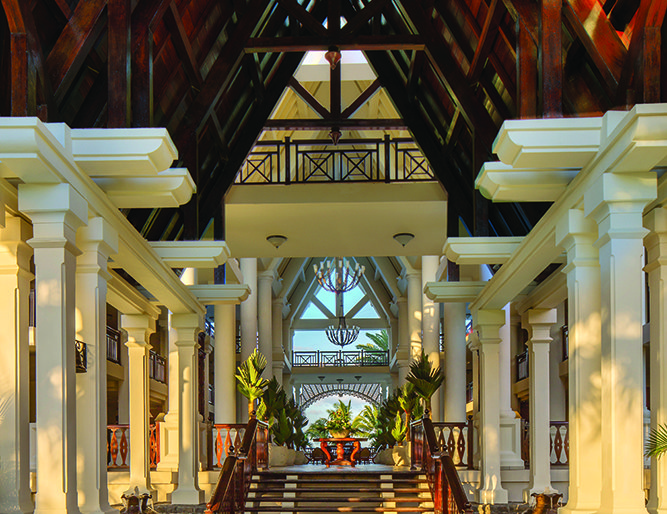
The hotel’s lobby frames the Indian Ocean
The first night, I leisurely walk along winding pathways to The Plantation, one of the main restaurants on site, serving authentic, local Mauritian cuisine by way of plenty of seafood and Creole-inspired dishes on a stunning patio overlooking the beach. Michael Li, EAM F&B of The Residence Mauritius, walks me through the culinary ethos of the resort.
“We serve local cuisine with a French touch,” he explains. As I tuck into a delightful scallop carpaccio laced with truffle, Michael continues, “We use the maximum of local products – except beef of course – and our main focus is seafood. Since most of our guests want to experience local culture, we create Mauritian cuisine. We buy herbs and vegetables from the farmers in our surrounding areas; fewer imports means less carbon use.”
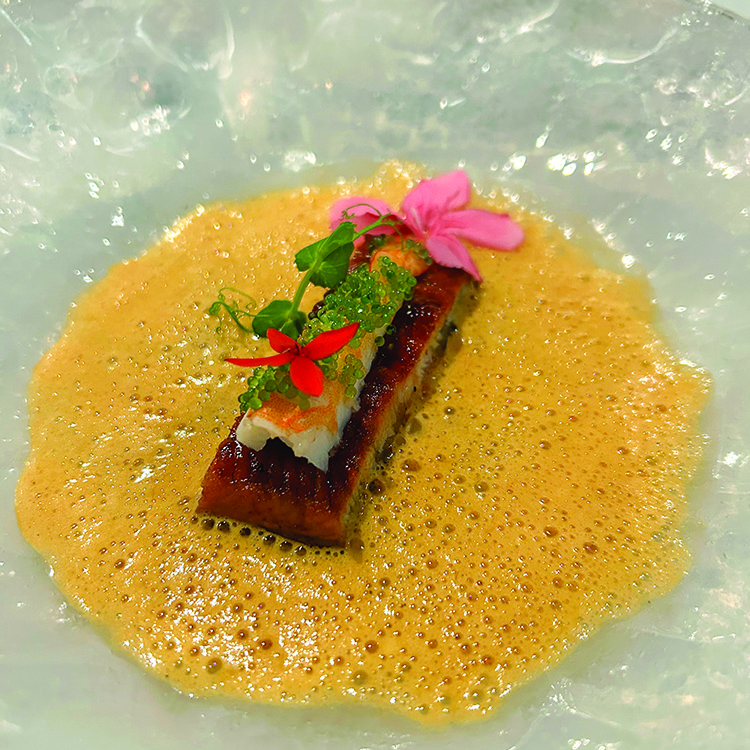
Eel and shrimp in a bisque sauce
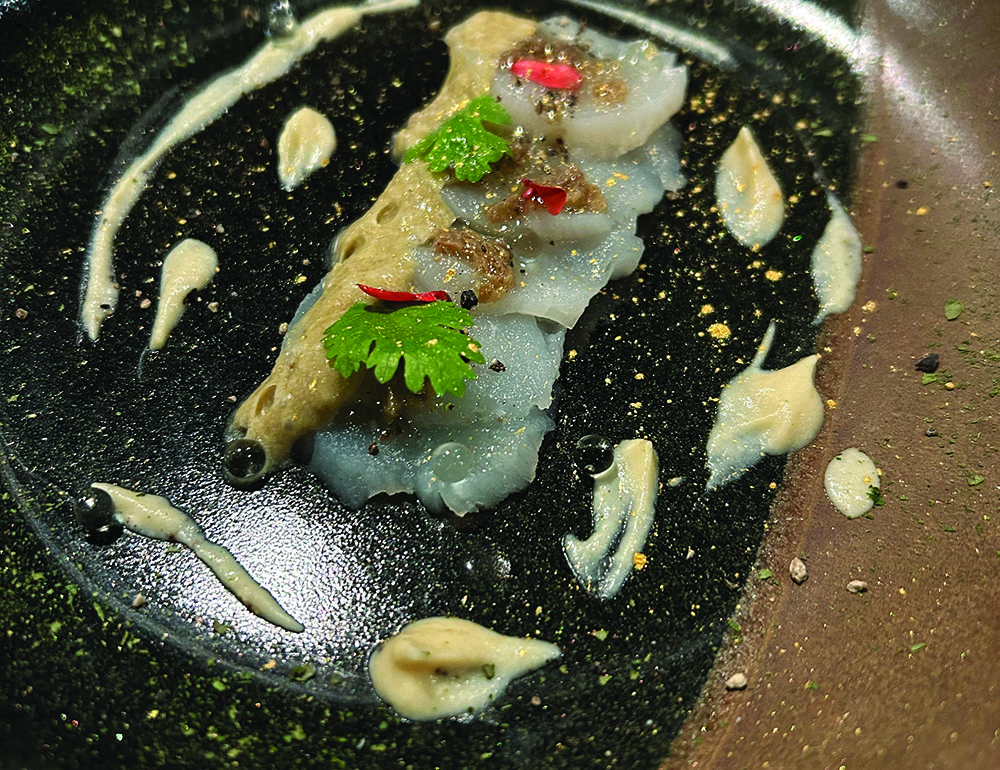
Scallop carpaccio with truffle
One of the projects Michael oversees is The Earth Basket. The resort’s verdant tropical gardens now have an area allocated for their own fruit and vegetable garden, leading sustainability efforts. He adds, “We plant our own spices. We have more 250 lemongrass trees; we don’t buy this ingredient anymore. The garden is also fully organic.”
The Earth Basket is flush with all kinds of plants, from rosemary to lime to figs, and much more. I’m brought here again when picking items needed for a cooking class with chef Jhingoor. I whip up a typical Mauritian chicken curry, reminiscent of Indian curries but with subtle differences. In this specific dish, the tomatoes are added right at the end, with the addition of thyme and no chilli powder whatsoever. Mauritian curries are distinctly less spicy than what you’d find on the Indian subcontinent.
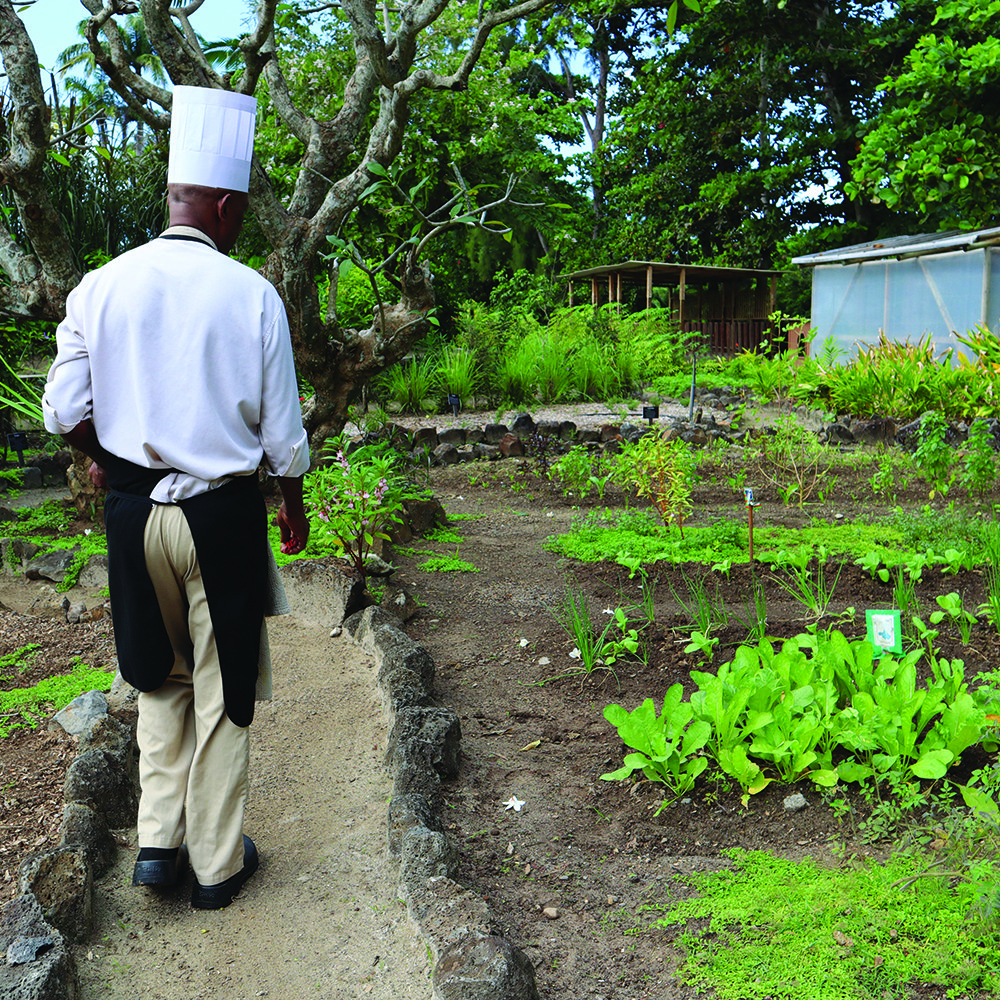
The Earth Basket is a fully organic fruit and vegetable garden
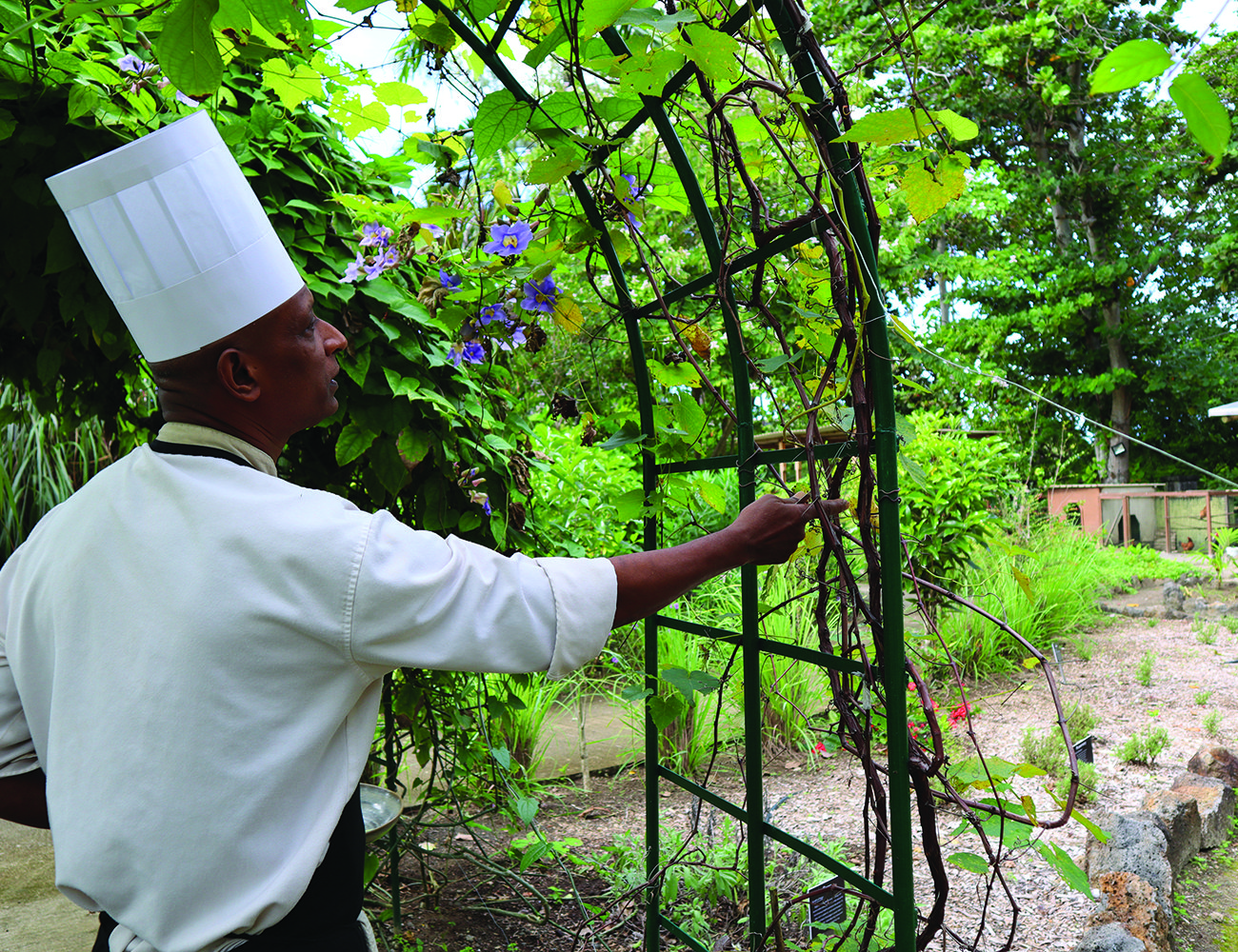
Picking herbs from The Earth Basket
This similarity to Indian cuisine is to be expected; some of the country’s population is of Indian heritage, who brought their culinary traditions with them and adapted to the ingredients to be found on the island. The history of trade and migrant workers to the nation has contributed towards creating a fascinating blend of French, Indian and Chinese influences on the island’s food.
A visit to a nearby local restaurant, Seasons, showcases this fusion. A hearty dish of beef rougaille (the meat is stewed in a Creole tomato-based sauce) with rice and farata (the Mauritian version of the Indian paratha, although this is less flaky) and deep-fried prawn boulettes keep me satisfied. More can be explored at the Flacq Market, just 15 minutes away. While you can buy all sorts of items from textiles, souvenirs and local handicrafts here, it’s the fruit and vegetable market that buzzes with a hive of activity on Wednesdays and Sundays. Rows after rows of fruits, vegetables, herbs and home-made pickle jars line the covered market. Mint, coriander, spring onions, papayas, melons, onions, carrots, tomatoes, chayote… I could go on. Vendors shout about their wares, customers haggle for all they’re worth and tourists curiously ask about unfamiliar produce. It’s an electric atmosphere. When you’re done with this feast for the senses, walk over to the corner of the Flacq Market overlooking the Rivière du Poste de Flacq, where you can pick up street food – from hot roti chauds to samosas or refreshing coconut water.
On my final day, a brief shower interrupts the usual sunny blue skies but the taste of what the island has to offer lingers – and I know I simply have to return to try more.
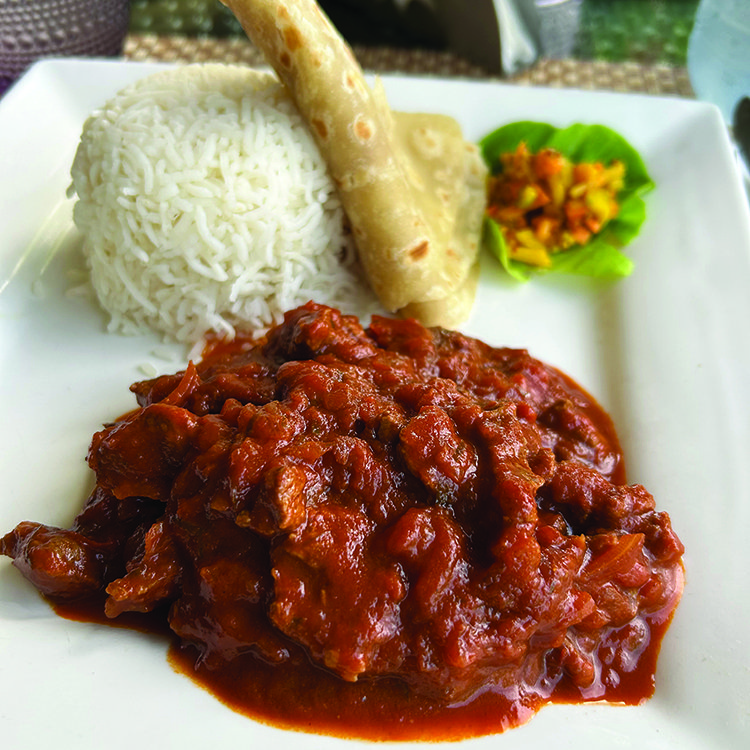
Beef rougaille with rice and farata
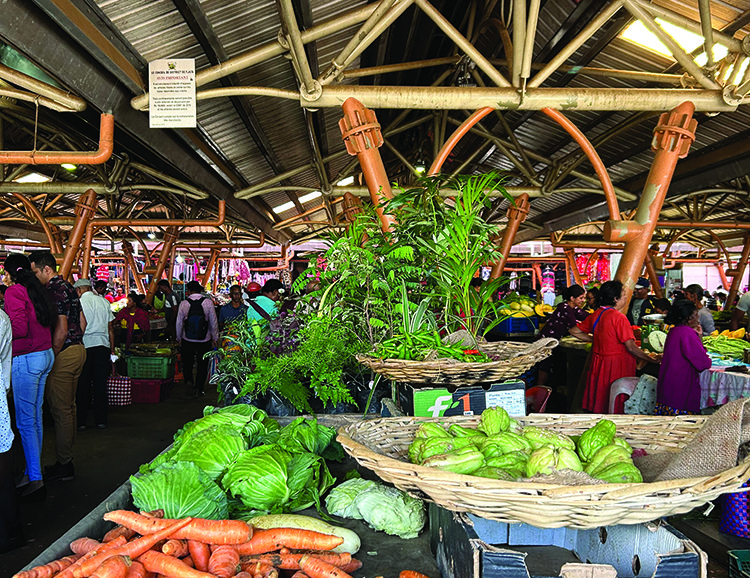
Rows of produce at Flacq Market
Win a stay
The Residence Mauritius is located on the east coast of Mauritius, along one of the island’s most beautiful beaches. The hotel’s 135 spacious guestrooms and 28 suites each have a private balcony or terrace that opens onto private tropical gardens or overlooking the peaceful lagoon.
The 800m2 Sanctuary Spa is dedicated to relaxation and the rejuvenation of the body, mind and soul, offering classic massages and custom-made programmes inspired by Asian techniques. The hotel offers a range of complimentary water activities including water skiing, windsurfing, hobie-cats, stand up paddling, canoes and kayaks, pedal boats, glass bottom boats and snorkelling trips. The Kids Club is a dedicated building inspired by a sugarcane plantation house with a creative and experienced team of professionals on hand to supervise activities for different age groups. Lunch and dinner are available at The Planters Kids Club.
To win a three-night stay with half-board and a cooking class, simply buy a copy of the July/August issue of Nourish by Spinneys. The winner will be announced in September 2023.
